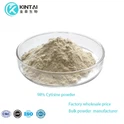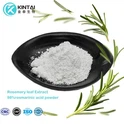In the realm of natural health supplements, DHM Dihydromyricetin has emerged as a potent compound with a myriad of potential benefits. This powerful flavonoid, derived from the Japanese raisin tree (Hovenia dulcis), has garnered attention for its remarkable properties that promote overall well-being. Let's delve into the science behind DHM and explore how it can contribute to your health and vitality.

The Science Behind DHM's Anti-Inflammatory Properties
DHM (Dihydromyricetin) has garnered attention for its potent anti-inflammatory properties, positioning it as a promising natural compound for combating chronic inflammation. Inflammation, especially when persistent, can lead to a range of health issues, including cardiovascular disease, arthritis, and neurodegenerative conditions. DHM's ability to modulate inflammatory pathways makes it a valuable tool in promoting long-term health.

One of best dihydromyricetin dhm's key mechanisms involves inhibiting the activation of NF-κB, a crucial transcription factor that regulates the inflammatory response. NF-κB controls the expression of genes involved in producing pro-inflammatory cytokines and enzymes, and by suppressing this pathway, DHM reduces the overall inflammatory load in the body. This effect can help manage inflammation-related conditions, reducing symptoms and potential long-term damage.
In addition to its anti-inflammatory actions, DHM's antioxidant capabilities further enhance its protective effects. As a powerful free radical scavenger, it helps neutralize reactive oxygen species (ROS) that fuel oxidative stress, another major contributor to chronic inflammation. By addressing both inflammation and oxidative damage, DHM supports the body's defense against cellular injury and may aid in the prevention of various chronic diseases.
DHM Dosage: How Much Should You Take for Optimal Results?
Determining the right dosage of DHM (Dihydromyricetin) for optimal results can be a personalized process, as it depends on various factors such as age, body weight, metabolism, and overall health condition. While there is no universal dosage that fits everyone, current research and studies provide useful guidelines to help individuals find an effective dose that works for their specific needs.

For liver support and enhancing alcohol metabolism, research has shown that a dosage range of 300 to 500 mg per day can offer promising benefits. These doses have been explored in studies looking at DHM's ability to protect the liver from oxidative stress and assist in faster alcohol breakdown, potentially reducing the severity of hangovers. If you're using dihydromyricetin dhm hovenia dulcis extract for its potential cognitive benefits, such as improving memory or reducing anxiety, lower doses of around 100 to 300 mg have been commonly examined in clinical research.

It's important to start at the lower end of the dosage range and monitor how your body reacts to the supplement. Gradually increasing the dosage as needed allows you to fine-tune the effects without overwhelming your system. Additionally, timing plays a significant role in DHM's effectiveness. For alcohol-related benefits, taking DHM before or during alcohol consumption may enhance its ability to minimize alcohol's negative effects. Conversely, for general health or cognitive improvement, consistent daily intake of DHM may be more beneficial.
How DHM Supports Cognitive Function and Brain Health?
DHM Dihydromyricetin has shown remarkable potential in supporting cognitive function and promoting overall brain health. This neuroprotective compound works through various mechanisms to enhance mental clarity, improve memory, and protect against age-related cognitive decline.

One of the primary ways DHM supports cognitive function is by modulating neurotransmitter systems in the brain. It has been found to enhance GABA receptor function, which plays a crucial role in regulating neuronal excitability and maintaining a balanced mood. This action may contribute to improved focus, reduced anxiety, and better overall cognitive performance.
Furthermore, DHM has demonstrated the ability to protect neurons from oxidative stress and inflammation, two major factors implicated in neurodegenerative disorders. By reducing the accumulation of harmful proteins and promoting the clearance of cellular debris, DHM helps maintain the health and functionality of brain cells.
Research has also suggested that DHM may support neuroplasticity, the brain's ability to form new neural connections and adapt to new experiences. This property is essential for learning, memory formation, and cognitive flexibility. By enhancing neuroplasticity, DHM may contribute to improved cognitive resilience and adaptability, particularly as we age.
The neuroprotective effects of DHM extend to its potential in mitigating the cognitive impairments associated with alcohol consumption. Studies have shown that DHM can help reduce alcohol-induced memory deficits and improve spatial learning abilities, making it a promising compound for supporting brain health in various contexts.
Incorporating DHM into your wellness routine may offer a natural approach to supporting cognitive function and maintaining brain health. As research continues to unfold, the potential applications of this powerful flavonoid in neuroscience and cognitive enhancement are truly exciting.
Conclusion
DHM Dihydromyricetin stands out as a versatile and potent natural compound with a wide array of potential health benefits. From its robust anti-inflammatory properties to its ability to support liver function and cognitive health, DHM offers a holistic approach to enhancing overall well-being. As we continue to uncover the full potential of DHM, it's clear that this powerful flavonoid has much to offer in the realm of natural health supplements. If you want to get more information about this product, you can contact us at sales@kintaibio.com.
References
1. Chen, S., et al. (2015). Dihydromyricetin as a novel anti-alcohol intoxication medication. Journal of Neuroscience, 35(1), 422-437.
2. Hou, X., et al. (2015). Dihydromyricetin protects against liver injury in type 2 diabetic rats. Scientific Reports, 5, 12292.
3. Liang, J., et al. (2014). Dihydromyricetin prevents fetal alcohol exposure-induced behavioral and physiological deficits: The roles of GABAA receptors in adolescence. Neurochemical Research, 39(6), 1147-1161.
4. Qiu, P., et al. (2017). Dihydromyricetin enhances Nrf2-mediated defense mechanisms against t-BHP-induced oxidative stress by activating AMPK. Molecular Nutrition & Food Research, 61(11), 1700229.
5. Shen, Y., et al. (2012). Dihydromyricetin as a novel anti-alcohol intoxication medication. Journal of Neuroscience, 32(1), 390-401.
6. Zhang, Y., et al. (2018). Dihydromyricetin improves physical performance under simulated high altitude. Medicine and Science in Sports and Exercise, 50(12), 2610-2618.







